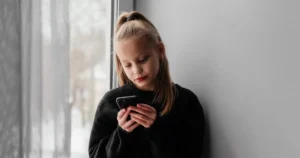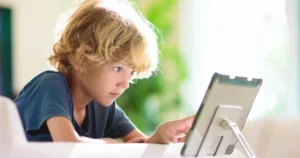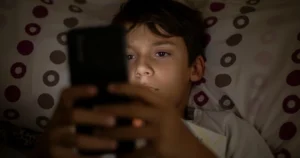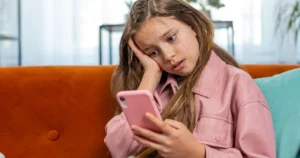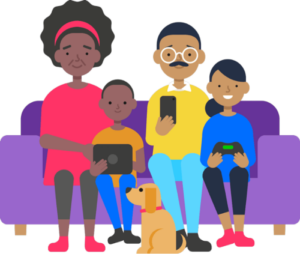Experts Karl Hopwood and Catherine Knibbs discuss the impacts of online technology on children and young people’s mental health, especially how tech may affect feelings of loneliness. See what you can do to support children who might experience these feelings.
Finding the balance is key when managing children online activities
It has been a challenging couple of years for everyone. Technology has played a significant role and many would argue that without it, life would have been even more difficult. Yet we often hear of the concerns from parents and teachers about children and young people who are immersed in technology, barely looking up from their devices.
For some, their connection to tech, whether it be a social media platform or an online game that they are playing, is an integral part of their social life. It is how they interact with friends, share opinions, make plans and keep in touch. However, for others, it can be a more one-sided experience where they are consuming content but not really engaging with others in a meaningful way.
Balance is the key here – parents need to ensure that whilst there is a place for online activity, it has to be interspersed with other things that are happening offline, which also provide connections and opportunities to interact and communicate with others.
Parents also need to set a good example and, when using devices, model the behaviour that they would like to see in their children. Too many younger children talk about a ban on mobile phones at the dinner table only to then explain that their parents regularly break the rule and that no one talks to them.
Tech can have a very positive effect on us all but it needs to be managed carefully. When children are younger, that means rules and boundaries until they are able to regulate things for themselves.
Helping children build healthy connections in a hyper-connected world
It is often said we live in a hyper-connected world, with people at our fingertips only a click away. However, children and young people can still feel lonely even with this many people at their disposal.
Our connections (sometimes called ‘bonds’) with people are how we feel emotionally and psychologically healthy. When we are in relationships that feel good, this can have a positive impact on our physiology too. They can literally help us feel good.
However, when we look at what constitutes a ‘good’ relationship or, in the digital space, our online friends, we are looking for a number of things that mirror the real world versions, namely: reciprocity, rapport, sharing, kindness and a feeling that we are seen and heard by the other person.
Technology helps children feel connected digitally, but friendships require being the connection and doing the connecting by using the skills listed above. Some children are more skilled at doing this than others and when they are not so good, or feel that the other person is not doing ‘their fair share’, it can result in them feeling rejected, isolated and lonely. It hurts.
What we call ‘inter-personal’ relationships can be helped by the adults around listening out for how our children speak to one another, play games together or react to things shared online. We can guide them by following what is called the Golden Thread: do unto others as you wish others to do unto you.
This means as the adult, you can help them learn to regulate their connections and conversations, and lead by example too. Children who feel lonely are hurting and need our skills as adults to help them learn what we call ‘give and take’; that friendships are worth their weight in gold, psychologically speaking, so taking care of them helps children stay connected and this feels good.
